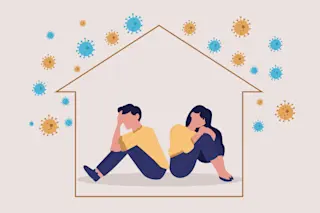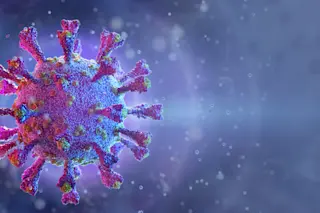Since the start of the COVID-19 pandemic, approximately three years ago, the ways that we work, study and spend our time have all shifted. It’s therefore not surprising that the pandemic has also altered our minds — transforming the feelings, thoughts and traits that make us unique.
In fact, in spite of the pervasive theory among psychologists that people’s personalities remain relatively stagnant in the face of shared stressors, a paper published in PLOS ONE this fall states that the temperaments of thousands of individuals in the U.S. have shifted thanks to the pandemic, with younger people seeing the worst of the impact.
So, in what ways could coronavirus change who we are, and will these changes stick around?
The psychological symptoms of an infection of COVID-19 are, in and of themselves, stark. For instance, an abundance of infected individuals suffer from symptoms involving their mood, stress and ability to ...















